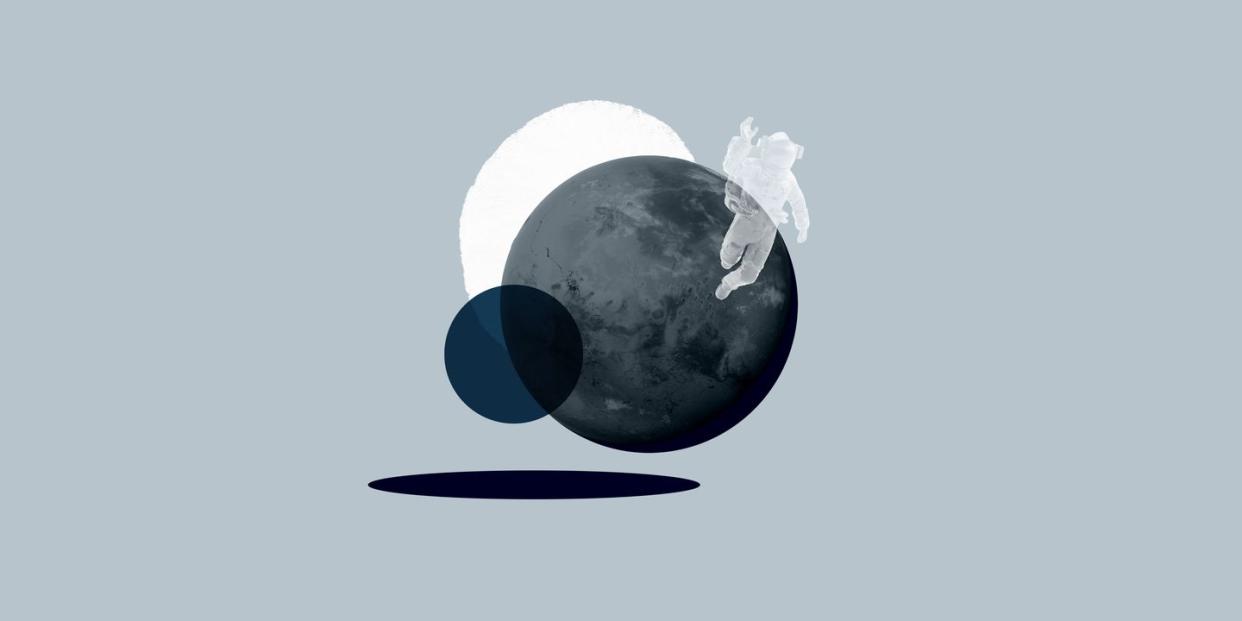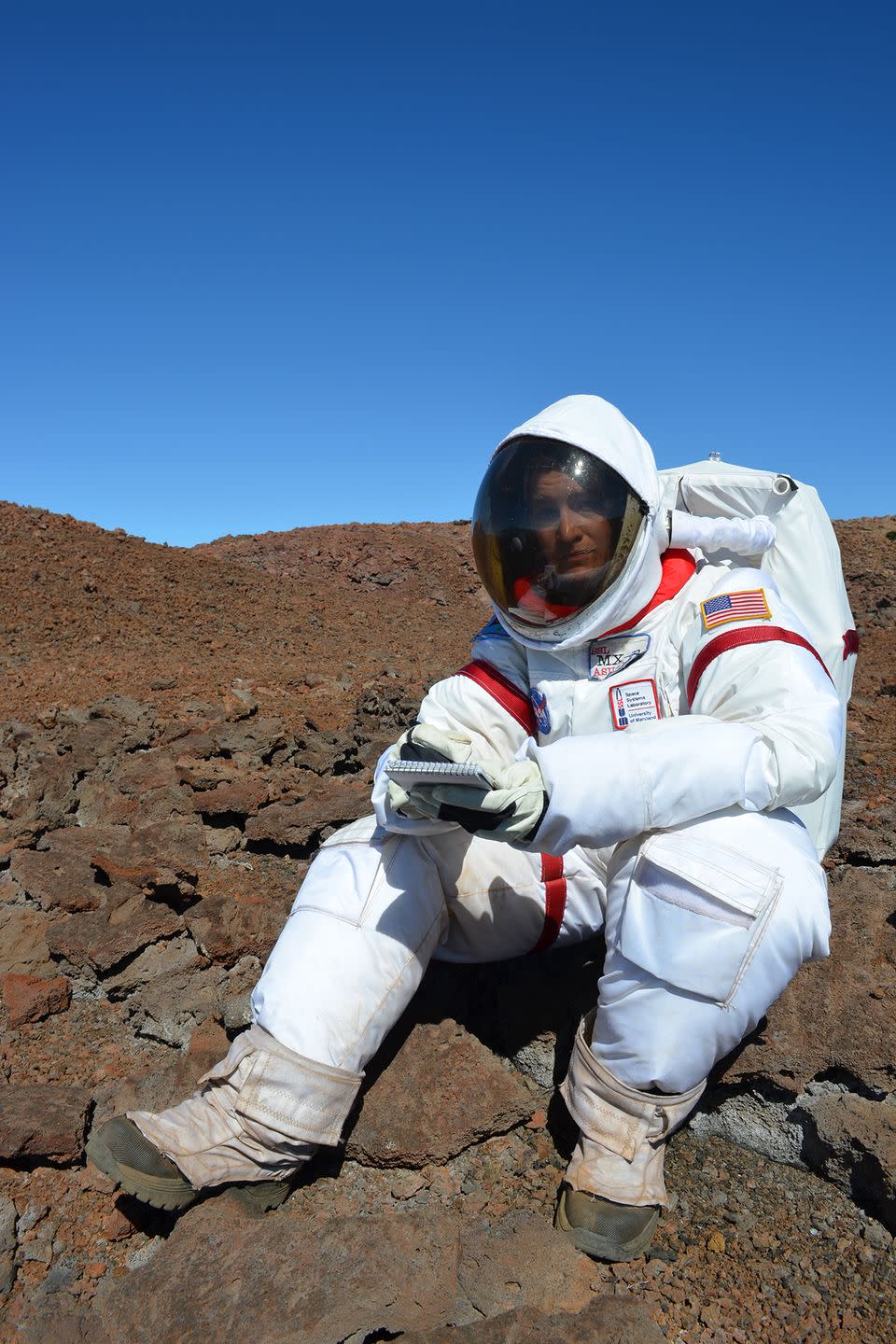What Simulating Life on Mars Taught Me About Living in Quarantine

A day on Mars is 37 minutes longer than on Earth. I mention this fact because last week, I started using my electric candles again—ivory colored, hard plastic, IKEA bought—and noticed that after a few hours, they died. I blamed the batteries, but the next day, they turned back on.
Oh, I realized, they’re on a timer. Except by the fourth day, it seemed to me that the timer had some drift, that the flickering returned a little earlier than the previous day, which, come to think of it, was earlier than the day before that. As I write this, the candles have just turned on again at 2:34 in the afternoon.
It’s raining out, a gloomy New York sky in early December, so I’m glad for the midday mood lighting, though not as pleased by the subtle reminder yet again that the passage of time is context dependent—that it really does matter if you’re having fun, or on another planet, or in a kind of quarantine during a pandemic awaiting a vaccine rollout, or using a timepiece that’s a little off.
Though, having just typed that, I now realize I’m suddenly also pleased by the candles and their imprecise clock, because after having spent so much time in this studio apartment, they are a nice reminder that there are still discoveries to be made.

The sun shines less than half as brightly on Mars as it does on Earth. I mention this fact because as the days have gotten shorter and the air colder, I’m much less inclined to go outside. My temperament is naturally more indoor cat, but I know from experience it’d do me some good to take more walks. I even live near a park. It’s just a hassle and, after all, a pandemic rages. It’s acceptable if not somewhat expected to hole up.
Almost a year in and there are still contradictory messages about risks and correct behaviors, depending on where you live, the rules and norms. I know some people who have barely left their apartments or homes since March. I know others who engage with the world almost as if nothing has changed. What does it mean to be safe and care for the safety of others? It’s so easy to wear a mask. As the solstice approaches, sunsets come earlier, and I’ve decided to make an effort to watch more of them. The sky on Mars is red but turns blue at dusk and dawn.
In 2013, I was a crew member on one of NASA’s simulated Mars missions, where I lived in isolation with five other not-quite astronauts for four months. It was a kind of quarantine, but its purpose was to collect data—we were the guinea pigs—for a better future potential mission to the planet. We lived under strict conditions: among them, no phone calls or live Internet. Our emails were delayed 20 minutes each way, as they would be on real Mars. I mention this fact because even as glitchy as Earth technologies can sometimes be, at least during this pandemic most of us can still talk on the phone or see each other’s faces over Zoom, et cetera. And I’d like to believe that any kind of correspondence, even if brief, strained, or in extreme situations, when undertaken with care, is a kind of love. And that’s also why, during hard times, when communication fails for technical or other reasons, it can feel worse than terrible.
It’s been a lonelier-than-usual year for many people, including myself, but I’ve also maintained friendships and even romance. Over the summer, my partner and I tossed a Frisbee in the park. Starting close and then eventually separated by a wide swath of green, each successful throw and receipt felt like a correspondence. And how surprised and delighted I was when I was sure I had thrown too far off course, and yet she was able to reach high enough to catch it! Love! Even in a pandemic. On Mars, the air is 100 times thinner than on Earth. You can make a Frisbee fly; it just requires much more effort to span the gap.
It was a weird thing to do, as an adult, to pretend to live on Mars. But these days, it also feels weird to live on Earth. When I came back from the mission, I appreciated so much of what wasn’t possible during those four months—basic stuff: fresh fruits and vegetables, sunlight and breeze on my skin, beers with friends at a bar, swimming. I savored all of it for some time after, and even years later, I’d catch myself reveling in my good fortune to take a long shower or wander through a bookstore, just grateful to be a person alive right now, with other people, on this very fine planet.
So, gratitude. I also brought back more noticing, more emotional sensitivities, and less patience with the trivial. In the next year, as vaccines are distributed, hundreds of millions if not billions of people will have a similar experience—a return. I wonder how the time away has collectively changed us.
I wonder which changes will stick and what kind of new world we might create for ourselves in the years to come.
You Might Also Like

